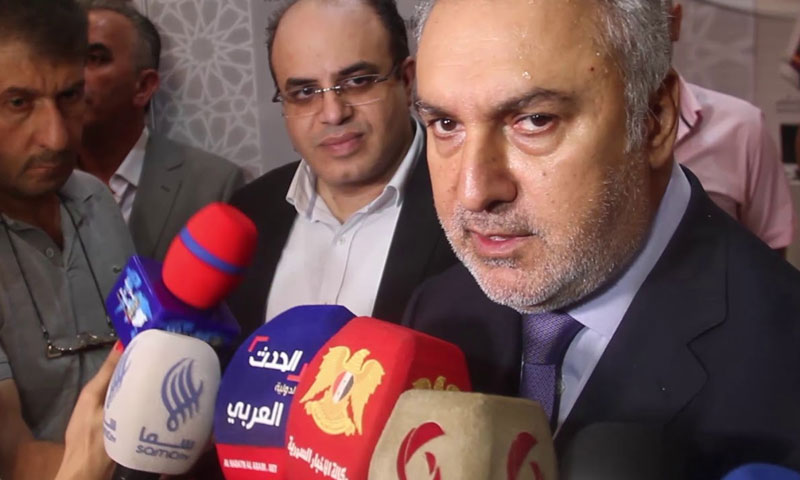The Syrian regime’s People’s Assembly (Parliament) has revoked the membership of prominent businessman Mohammad Hamsho, citing his Turkish citizenship. This marks the second such decision in less than two weeks. According to the pro-regime newspaper al-Watan, the Assembly voted unanimously to strip Hamsho of his position.
Hamsho, a long-standing member of the People’s Assembly since 2012, follows Shadi al-Dabsi, whose membership was similarly revoked on October 10th for holding Turkish citizenship. However, the exact timeline and circumstances of how and when Hamsho obtained Turkish citizenship remain unclear, particularly given his close ties to the Syrian regime.
Hamsho, who first entered the Assembly in 2012, won subsequent elections in 2016. He initially withdrew from the 2020 race due to alleged pressure from Hilal al-Hilal, the assistant national secretary of the Baath Party. However, he returned to the political arena and was re-elected in 2024.
Who is Mohammad Hamsho?
Born in 1966 in Damascus, Hamsho holds a degree in electronic engineering and initially worked for a government department. His rise in the business world began through a relationship with Mudhar Hawija, the son of former Air Force intelligence chief Ibrahim Hawija. This friendship evolved into significant economic partnerships, and his influence expanded after he became associated with Maher al-Assad, serving as a business front for him.
Hamsho’s business empire spans various sectors, including communications, advertising, marketing, and artistic production. He founded Syria International for Artistic Production and the news site Sham Press, and co-founded Al-Dunya TV. In 1989, he established Hamsho International Group, which encompasses around 20 companies involved in government and residential contracting.
On a governmental level, Hamsho has held key positions such as secretary of the Damascus Chamber of Commerce, head of the Federation of Syrian Chambers of Commerce, and head of the Metals and Smelting Council, which he has led since 2015.
Hamsho’s business dealings and connections to the regime led to his placement under U.S. and European sanctions following the outbreak of the Syrian revolution, including under the Caesar Act. These sanctions were briefly lifted in 2014 before being reimposed in 2015, affecting both him and his family. Additionally, in November 2020, the Arab-German Chamber of Commerce removed Hamsho from its board due to his links with the Syrian regime, though he remained a member of the Syrian-Chinese Businessmen’s Council.
Hamsho’s reputation is further shadowed by his inclusion in a Syria TV report titled “Assad’s Whales: The Faces of Economic Corruption in Syria,” which highlighted his role in profiting from regime-controlled areas. The report detailed how he allegedly extracted iron from destroyed homes and transferred it to smelting factories in cooperation with the Fourth Division.
This latest move by the People’s Assembly underscores the precarious standing of regime-aligned businessmen like Hamsho, as political dynamics continue to shift in Syria.
This article was translated and edited by The Syrian Observer. The Syrian Observer has not verified the content of this story. Responsibility for the information and views set out in this article lies entirely with the author.


